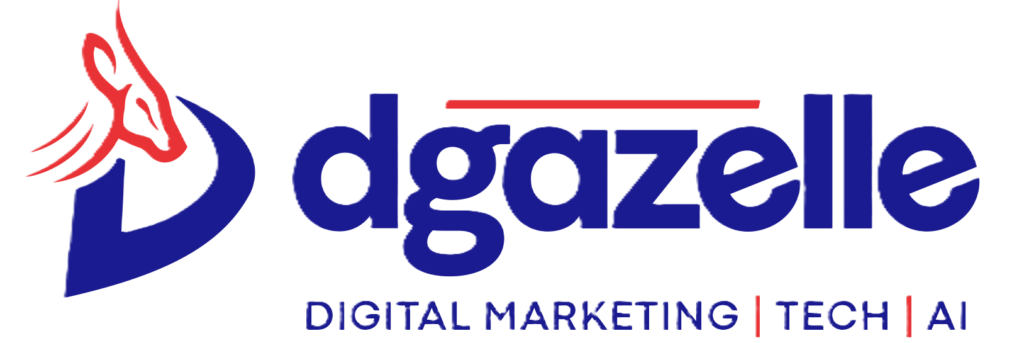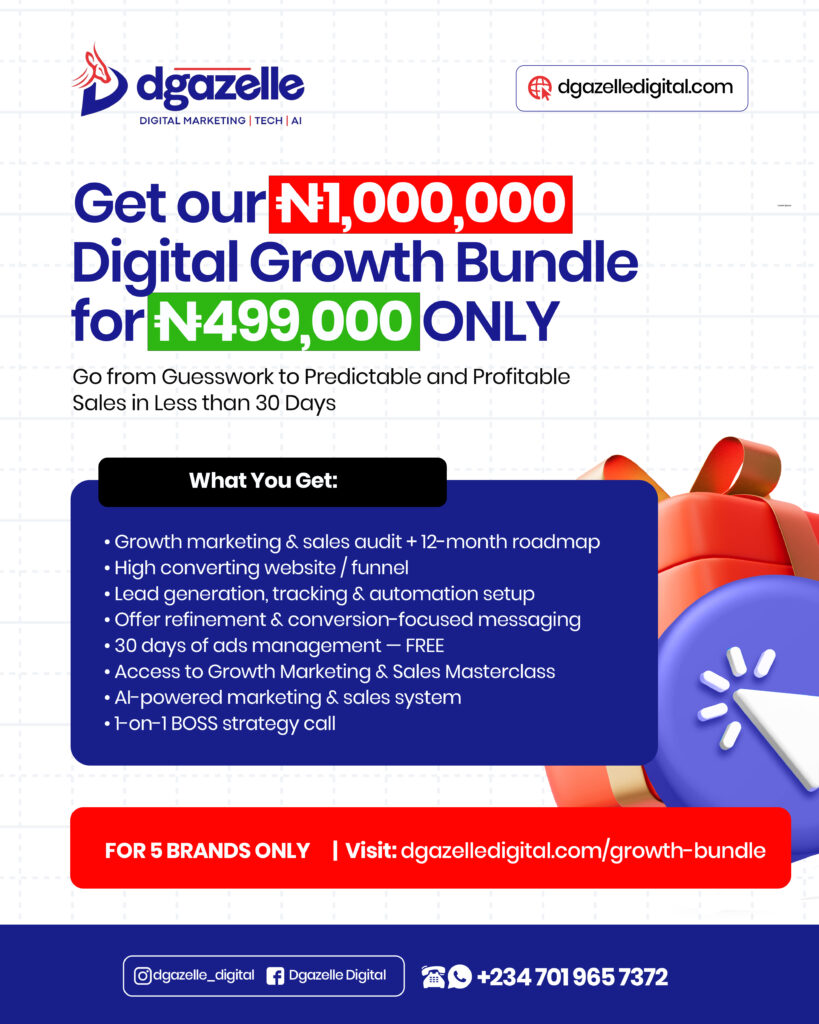Every business owner in Nigeria today wants more sales. And for most people, the fastest way they think about is running Facebook, Instagram, TikTok or Google ads.
You probably know one or two friends who spent ₦50,000, ₦100,000 or even ₦500,000 on ads but couldn’t point to any tangible result. Their followers didn’t buy, their leads didn’t convert, and their money went down the drain.
The truth is simple. Paid ads without a proper marketing strategy are like pouring water into a basket. No matter how much you pour, it will never hold.
Let’s break this down so you clearly understand why ads alone cannot grow your business and why strategy should come first before spending one naira on ads.
The Illusion of “More Traffic”
Many entrepreneurs believe that the more people who see their ad, the more sales they will make. It sounds logical, right? If 10,000 people see your ad, surely some of them should buy?
But here’s the problem. If you are targeting the wrong people, if your message is not clear, or if you have no system to nurture and close the people who click, then all that traffic is useless.
It’s like shouting in a busy Lagos market without telling people why they should buy from you. They will hear you; they will even see you, but they will walk past you because your offer doesn’t connect with them.
Why Paid Ads Fail Without Strategy
There are key reasons why paid ads without strategy don’t bring results.
1. Wrong Target Audience
Many business owners simply boost posts. They don’t define who exactly their ideal customer is. Instead of reaching the people who are ready to buy, they reach random users scrolling for entertainment. You end up paying for likes and views instead of actual customers.
2. Poor Value Proposition
Your ad must answer one important question: “Why should I buy from you instead of someone else?” If your message doesn’t clearly communicate value and uniqueness, people won’t click or take you seriously.
3. No Sales Funnel
Let’s say 1000 people click your ad. What happens next? Do you have a system to follow up, educate, and convert them into buyers? If not, they will simply disappear and forget you. Ads without a funnel are like inviting guests to a party without food, drinks or seats. They will come, look around, and leave.
4. Lack of Trust and Credibility
Nobody buys the first time they see an ad. Nigerian customers especially are very sceptical because scams are everywhere. If your strategy doesn’t include building trust through testimonials, content, or nurturing, people won’t risk their money with you.
5. No Tracking or Data Analysis
Many people run ads blindly. They don’t check metrics like click-through rate, cost per lead, or conversion rate. Without data, you are just guessing. And in business, guessing is the fastest way to waste money.
What a Real Marketing Strategy Looks Like
So, what’s the difference between someone who burns cash on ads and someone who turns ads into a money machine?
It’s strategy. A proper marketing strategy has clear steps that guide your prospects from strangers to loyal customers.
Here’s what that includes:
1. Identifying Your Ideal Customer
You need to know who exactly you are targeting. Not “everybody who uses Instagram”. A clear profile: their age, income level, location, pain points, and what motivates them to buy.
2. Crafting a Strong Offer
Your product or service must be positioned as the solution to a pressing problem. Nigerians don’t buy products. They buy solutions. If your offer doesn’t connect with a real pain point, your ads will fail.
3. Building a Funnel
Instead of pushing people straight to “buy now”, you create a journey. From awareness (they first hear about you), to interest (they engage with your content), to decision (they trust you enough to buy). A funnel could include lead magnets, email nurturing, WhatsApp follow-ups, or webinars.
4. Content That Builds Authority
When people see your ad, they should also see content that proves you know what you are doing. Articles, short videos, testimonials, and case studies all build credibility and make it easier for customers to trust you.
5. Retargeting and Follow-Up
Most people will not buy the first time they see your ad. But if you retarget them with another ad or follow up through WhatsApp, they are more likely to come back and buy.
6. Tracking and Optimization
A winning strategy always tracks results. If an ad set is not working, you adjust the message, change the audience, or improve your offer. This way, every naira you spend is accountable.
Real Example: The Difference Strategy Makes
Imagine two fashion brands in Lagos; both run ₦100,000 worth of ads.
Brand A just boosts posts showing beautiful clothes. They tell people, “Buy now.” Out of 1000 clicks, maybe 10 people buy. They barely recover their ad spend.
Brand B, on the other hand, has a strategy. They first run an ad that offers a free style guide download in exchange for phone numbers. They collect 500 leads. Then they follow up on WhatsApp with tips, testimonials, and special offers. Within 30 days, 80 people buy. Not only do they recover their ad spend, but they also build a database of loyal customers who will buy again and again.
That’s the power of strategy. Same ad spend, totally different result.
Why Strategy Must Come Before Ads
Paid ads amplify what you already have. If your marketing foundation is weak, ads will only expose that weakness faster. But if your system is strong, ads will multiply your results.
Think of ads like fuel. If your car has no engine, pouring more fuel will not move it. Strategy is the engine. Ads are just the acceleration.
This is why so many business owners in Nigeria complain that “ads don’t work.” Ads do work. What doesn’t work is running ads without a plan.
How to Stop Wasting Money on Paid Ads
If you truly want to scale your business, stop boosting random posts. Sit down and build a strategy. Or work with experts who understand how to combine ads with funnels, automation, and sales systems.
When you run ads with a clear strategy, every naira spent will bring measurable returns. Instead of wasting ₦50,000 and getting zero sales, you can spend that same ₦50,000 and generate ₦250,000 in revenue.
Final Thoughts
Running paid ads without a marketing strategy is one of the fastest ways to waste your money as a business owner. Ads are powerful, but only when they are built on a strong foundation of audience targeting, compelling offers, funnels, content, and follow-up.
If you are serious about scaling your business, you need to stop treating ads like gambling. You need a proven strategy that works in the Nigerian market.
That’s what we do at Dgazelle Agency. We help businesses design and execute powerful marketing strategies that turn paid ads into real profit.
👉 Send us a DM today, and let’s help you stop wasting money and start scaling your business the smart way.
Click here to contact Dgazelle







